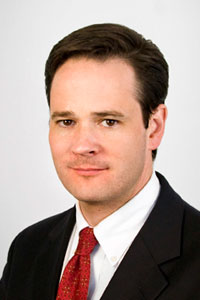
Whether denial of climate science was what the Americans thought they were voting for when they cast their ballots for many of the Republican candidates in the mid-term election, or whether they had other things on their mind, the end result is that the US now has an apparent majority of legislators who flatly deny climate change, or, if they don’t go that far, certainly deny the need to address it. It’s an extraordinary spectacle. The science is utterly clear, more so by the day. But the clearer it gets the more sure the denial becomes in that sadly mixed-up country. Their own government scientific institutions are to the forefront in the reporting of climate change. Their National Academies of Science produce regular accessible reports affirming the science and urging appropriate responses. Their universities provide a large number of scientists working productively on many aspects of the issue. Yet a substantial sector of their politicians are now confidently announcing that they don’t believe it’s happening. Suzanne Goldberg in the Guardian reports an investigation by a website run by the Centre for American Progress think tank which found 50% of the more than 100 Republican newcomers deny the existence of man-made climate change. An overwhelming majority, 86%, oppose legislation that would raise taxes on polluting industries.
“Climate is gone,” was Karl Rove’s comforting message to the attendees of a shale-gas conference in Philadelphia, Brad Johnson reports. Rove told them that the incoming Republican House of Representatives “sure as heck” won’t pass legislation to limit greenhouse pollution from fossil fuels.
In an op-ed in the Washington Post on Sunday Bracken Hendricks (pictured) put his finger on the radical nature of the conservatism which informs the Republican denial of climate science. It is conservatism at odds with itself.
“…far from being conservative, the Republican stance on global warming shows a stunning appetite for risk.
“…they are recklessly betting the farm on a single, best-case scenario: That the scientific consensus about global warming will turn out to be wrong. This is bad risk management and an irresponsible way to run anything, whether a business, an economy or a planet.”
It’s a very high risk, as he reminds readers:
“The best science available suggests that without taking action to fundamentally change how we produce and use energy, we could see temperatures rise 9 to 11 degrees Fahrenheit over much of the United States by 2090. These estimates have sometimes been called high-end predictions, but the corresponding low-end forecasts assume we will rally as a country to shift course. That hasn’t happened, so the worst case must become our best guess.”
The irony, he points out, is that the result would be not the rolled-back government that Republicans are currently espousing but a greatly expanded role for government:
“With temperature increases in this range, studies predict a permanent drought throughout the Southwest, much like the Dust Bowl of the 1930s, but this time stretching from Kansas to California. If you hate bailouts or want to end farm subsidies, this is a problem. Rising ocean acidity, meanwhile, will bring collapsing fisheries, catch restrictions – and unemployment checks. And rising sea levels will mean big bills as cash-strapped cities set about rebuilding infrastructure and repairing storm damage. With Americans in pain, the government will have to respond. And who will shoulder these new burdens? Future taxpayers.”
The sheer recklessness of denying climate change or the need for action to address it is breathtaking. It’s unfathomable considered alongside the caution with which the US guards itself against terrorism, for example. It’s so deeply irrational that one wonders if anything can shift it. Yet the deniers won enough of the votes. Small wonder that Stephen Schneider feared democracy couldn’t cope with the confusion in which the issue of climate change has been wrapped.
The Administration, which doesn’t deny climate science, appears to have lost its nerve or not know how to speak to the public about the matter. However there are encouraging indications that American scientists are ready to enter the bruising public arena to challenge the confident denial that is echoing in political circles. The LA Times reports today that there is rising support among climate scientists to establish a broad campaign to push back against the congressional conservatives who have vowed to kill regulations on greenhouse gas emissions.
“The still-evolving efforts reveal a shift among climate scientists, many of whom have traditionally stayed out of politics and avoided the news media. Many now say they are willing to go toe-to-toe with their critics…”
The American Geophysical Union plans to announce today that 700 researchers have agreed to speak out on the issue.
Another announced pushback intention comes from John Abraham of St Thomas University in Minnesota whom Hot Topic readers will recall received enormous support here when attacked by Christopher Monckton. He is pulling together a “Climate Rapid Response Team,” which includes scientists prepared to go before what they consider potentially hostile audiences on conservative talk-radio and television shows.
Scott Mandia, professor of physical sciences at Suffolk County Community College in New York explains:
“This group feels strongly that science and politics can’t be divorced and that we need to take bold measures to not only communicate science but also to aggressively engage the denialists and politicians who attack climate science and its scientists.
“We are taking the fight to them because we are … tired of taking the hits. The notion that truth will prevail is not working. The truth has been out there for the past two decades, and nothing has changed.”
If such developments take place on a large enough scale they could be very important. The public would better see just how strong the consensus is amongst those scientists who actually work on the issue. They would also realise the alarm that many of the scientists feel as emissions continue to rise. It’s all too easy for politicians to isolate distinguished figures like James Hansen and portray them as some kind of maverick, but phalanxes of scientists ready to speak out publicly would be a different matter. At least it would make it absolutely clear to the public that if they run with their denialist politicians on this issue they are rejecting mainstream science and exposing themselves to what the science sees as grave risks. I’m not sure that they as yet realise that is what they’re doing.




 A detailed investigation into the genesis of the 2006 Wegman Report — much beloved of climate sceptics because it was critical of the “
A detailed investigation into the genesis of the 2006 Wegman Report — much beloved of climate sceptics because it was critical of the “